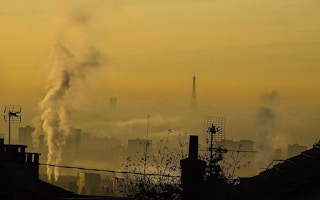Last month, Hidalgo formally presented the Global Urban Air Pollution Observatory, or GUAPO for short, to the Paris city council. Already, Abidjan, London, Mexico and Rotterdam have committed to joining, while Athens, Montréal, New York City, Peking and Tokyo are in discussions to join.
The new observatory will not be a scientific institute that collects data on air quality. Rather, it will serve as a clearinghouse for best practices around air quality in cities, including techniques for accurately measuring particulate matter, public policies that get rid of smog and more.
The aim is to help cities across the globe get on the same page when it comes to assessing and solving the problem of dangerous air.
“For years, the WHO [World Health Organization] has sounded the alarm on air pollution, and it seems opportune for us to work closely with big-city mayors,” said Maria Neira, director of the WHO’s public-health department. “The creation of an observatory to evaluate the impact of different public interventions on health, whether positive or negative, is very useful.”
The WHO, which supports the observatory but does not contribute financially, estimates that air pollution kills 3 million people in cities annually. In December, Paris and three other cities announced that they would phase out the use of diesel vehicles over the coming decade, in addition to other climate and air-pollution actions.
“
For years, the WHO [World Health Organization] has sounded the alarm on air pollution, and it seems opportune for us to work closely with big-city mayors.
Maria Neira, director, public health department, World Health Organization
[See: Four cities announce landmark ban on diesel vehicles]
The observatory will operate under an estimated EUR 500,000 annual budget, according to City of Paris spokesperson Simon Le Boulaire. Member cities will contribute to fund the observatory.
In the next few months, an advisory council consisting of representatives from the WHO, United Nations Environmental Programme and Organization for Economic Cooperation and Development will join the GUAPO’s charter cities to outline exactly how the new center can be most effective within that budget, Le Boulaire said.
“The challenge is to put cities, especially their air quality monitoring mechanisms, into an effective network along with civil society actors, research institutions and all the organizations that work on this topic,” Le Boulaire told Citiscope via e-mail.
Hidalgo first announced the idea last June at the “Cities for Air” conference in Paris. At the time, she floated the GUAPO proposal as part of the run-up to the U. N.’s Habitat III summit on urbanization, which was held in October.
However, Le Boulaire did not view last month’s announcement as making good on a specific commitment ahead of Habitat III but rather as a step in the general movement of cities tackling climate issues.
[See: Eleven cities that are showing the way on fighting climate change]
While Hidalgo is also the president of the C40 Cities Climate Leadership Group, the observatory is being described more as an attempt to recalibrate the balance between climate activism and general concerns over public health.
“For example, installing chimney filters is good for fighting climate change, but it also helps block particulate matter that is harmful when inhaled,” said Elsa Martayan, Paris City Hall’s point person for GUAPO.
The observatory is expected to commence its work following a June public unveiling in Rotterdam.
This story was published with permission from Citiscope, a nonprofit news outlet that covers innovations in cities around the world. More at Citiscope.org.

















